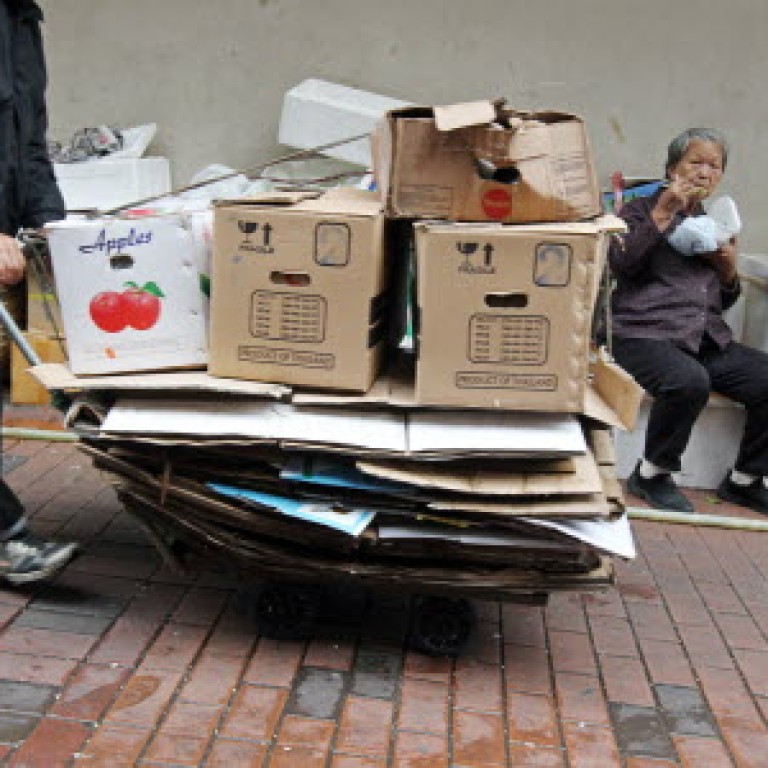
Cash subsidies go only so far in reducing poverty in Hong Kong
The plight of the poor in Hong Kong needs to be addressed, but we must recognise that cash subsidies only go so far in alleviating the problem
Tackling poverty is a very difficult problem. First, there is the issue of the causes of low income, which boil down to one thing - low productivity.
This requires solutions that open up economic opportunities and enhance the capacity of the poor to become productive.
Second is how to tackle the direct consequences of poverty. A poor person can only afford a low level of consumption. Giving him or her an allowance alleviates its direct effect.
Helping the poor is a laudable goal, but let us not go overboard
This can be accomplished most efficiently through a cash-based income redistribution policy rather than cumbersome subsidies in kind.
The government's proposed low-income working family allowance aims to provide such an income supplement for families below - or nearly below - the newly defined poverty line.
This proposal is quite similar to the earned-income tax-credit scheme in the United States, which is a refinement of Milton Friedman's proposal for a negative income tax.
Friedman argued that income redistribution by government was justified because relying solely on voluntary charity would lead to a free-rider problem - if someone else gives charity to help the poor, I can benefit by letting them carry the burden of giving. This leads to too little charity.
He also argued for moderation in income redistribution, so that it was targeted at those who could not help themselves through no fault of their own.
Two considerations are relevant here.
First, negative-work-incentive effects cannot be avoided. A person receiving the cash subsidy also has a reduced incentive to work because he is now paid to enjoy leisure and consumption - this is the famous income effect.
The work disincentive problem is particularly acute in rich societies, because labour force participation declines as leisure is increasingly valued.
Second, in an ageing population, the effects of reduced total hours worked and reduced labour supply cannot be ignored. Both factors are rising in Hong Kong.

This occurred among both men and women, from 20 to 59 years of age.
"For no compelling reason" means they are not looking for a job, not at school, not sick, not in prison and not homemakers. They have just decided not to work.
Why has there been such a big leap in these individuals? An obvious answer is the big increase in social-welfare transfer spending, which more than doubled from 6 per cent of government spending in 1993-94 to 13.8 per cent by 2007-08.
The growth of government expenditure on subsidies and transfers is not confined to Hong Kong. There has been phenomenal growth across Western economies, too, rising from an average of 1.1 per cent of gross domestic product around 1870 to 23.2 per cent in 1995.
When more than a quarter of GDP is redistributed to help the underprivileged, one would expect poverty to have been considerably alleviated in these societies. But this has not happened. Poverty in the West has not improved by much.
Helping the poor is a laudable goal, but let us not go overboard - we need both warm hearts and cool heads.
It is important that the low-income working family allowance avoid providing an overly generous programme.
The government's proposal aims to mitigate the work disincentive effects by making the level of subsidy contingent on hours worked. Whether it will succeed depends on the details, which have yet to be debated in the Legislative Council.
Most likely, income redistribution has its limits in alleviating poverty, and like everything else is subject to diminishing returns.
Poverty alleviation has to be tackled on another front - economic growth.

